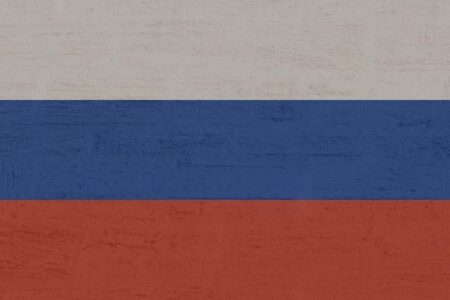Several far-right Israeli ministers have recently been sanctioned by the United Kingdom, Canada, and other allied nations, escalating tensions amid ongoing political and regional controversies. The measures, aimed at individuals associated with hardline policies and actions viewed as undermining democratic norms, mark a significant diplomatic move reflecting growing international concern over Israel’s internal political shifts. This development, reported by The Wall Street Journal, underscores mounting global scrutiny and its potential repercussions on Israel’s foreign relations.
Far-Right Israeli Ministers Face International Sanctions Amid Rising Tensions
Several far-right Israeli ministers have recently been targeted by international sanctions as global tensions escalate over the region’s political landscape. The United Kingdom, Canada, alongside the European Union, have imposed travel bans and asset freezes, citing concerns over policies that exacerbate conflict and deteriorate human rights conditions. These measures mark an unprecedented move against members of the Israeli government, signaling a growing willingness by Western allies to hold individuals accountable for actions perceived as undermining peace efforts.
The sanctions list includes ministers implicated in advancing controversial settlements and supporting legislation that critics say marginalizes Palestinian communities. Governments imposing these restrictions emphasize that diplomatic engagement alone has failed to curb the escalating violence, hence the need for more direct pressure. This coordinated international response also aims to send a stern message encouraging restraint and dialogue amid increasing instability in the Middle East.
- Sanctioning countries: United Kingdom, Canada, European Union, Australia
- Measures included: Travel bans, asset freezes, diplomatic restrictions
- Targets: Ministers responsible for settlement expansion and controversial legislation
- Goals: Curtail violence, pressure for renewed peace efforts
| Country | Sanction Type | Primary Focus |
|---|---|---|
| United Kingdom | Travel Ban & Asset Freeze | Settlement Expansion |
| Canada | Asset Freeze | Human Rights Violations |
| European Union | Travel Ban | Legislative Actions |
| Australia | Travel Ban | Conflict Escalation |
Impact of Sanctions on Israel’s Political Landscape and Diplomatic Relations
The recent wave of sanctions imposed by the U.K., Canada, and several other Western nations on far-right Israeli ministers has sent ripples through Israel’s political framework. These measures have profoundly affected the way coalition politics are conducted, amplifying tensions between hardline factions and moderate elements within the government. Diplomatic isolation risks hardening political stances, complicating efforts to sustain dialogue both domestically and on the international stage. Critics argue that sanctions may inadvertently strengthen nationalist rhetoric, while supporters believe they are essential pressure points for accountability and adherence to international norms.
Internationally, the sanctions have sent a clear message about the perceived erosion of democratic principles and human rights concerns. Foreign relations experts note the impact on key bilateral ties:
- U.K. and Canada: Heightened diplomatic distancing, affecting trade talks and strategic partnerships.
- European Union: Reevaluation of funding and cooperation programs related to regional security and economic development.
- United States: Increased pressure internally on congressional voices to reassess ongoing military aid packages.
| Country | Sanction Type | Primary Impact | |||||||||||
|---|---|---|---|---|---|---|---|---|---|---|---|---|---|
| United Kingdom | Travel bans, asset freezes | Diplomatic cooling, reduced ministerial engagement | |||||||||||
| Canada | Financial restrictions | Hindered foreign investments, economic pressure | |||||||||||
| European Union | Calls for International Community to Monitor and Respond to Nationalist Policies
Amid growing international concern, world leaders and human rights organizations have intensified calls for a coordinated global response to recent nationalist policies emerging from the Israeli government. The sanctions imposed by the U.K., Canada, and other allied nations have sparked debates over the broader implications of such measures, urging the international community to adopt vigilant monitoring frameworks. These frameworks aim to ensure that nationalist agendas do not undermine democratic values or exacerbate regional tensions. Key demands from international observers include:
Key TakeawaysAs the international community responds with sanctions against far-right Israeli ministers, the developments mark a significant escalation in diplomatic tensions surrounding Israel’s political landscape. The measures taken by the U.K., Canada, and other nations underscore growing global concerns about the actions and policies of these officials. Moving forward, the evolving response from both Israel and the international arena will be closely watched, as the implications of these sanctions continue to unfold on regional stability and diplomatic relations. |




